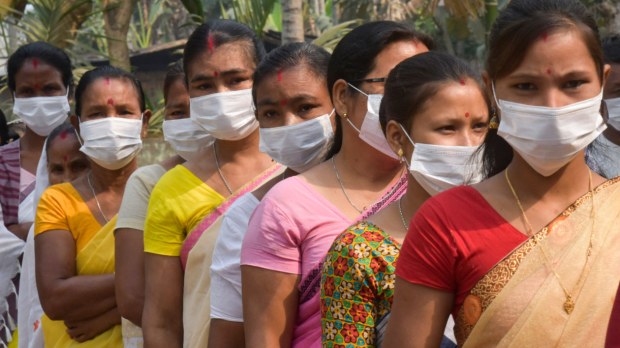“In India, everything is confused,” says Father Joji Philip.
Twenty-one million: this is the number of contaminated people in India according to the United Nations on May 7, 2021.
Worried about the situation in his country where Covid-19 infects 4 people every second and kills more than 2 every minute, Father Joji Philip, an Indian priest who has just presented his doctorate in France, tells I.MEDIA about the great difficulties faced by the health services in his country.
Originally from northern Kerala, Father Philip explains that the situation varies greatly from state to state in the Indian federation. “Each state deals with the situation in its own way,” he says, noting that the more densely populated north of the country is suffering more from the health crisis than the southern provinces.
Nevertheless, the problems are in fact the same everywhere: “overworked staff,” “lack of vaccines,” ” a saturated medical system.”
“Everywhere, there is a lack of structure,” shares the pastor, worried that the pandemic wave in India has overwhelmed all those currently living there. This problem can be explained primarily by the country’s “huge population,” he says.
Nevertheless, he acknowledges that “in India, everything is confused,” underlining the general political fiasco of these last weeks, between regional elections being maintained and the participation of President Modi in large religious festivals.
He notes that today the public is increasingly blaming their plight on the sale of Indian Covaxin to other countries – while today the Indian population is barely vaccinated (2.7% according to Our World in Data). A paradox that causes a lot of misunderstanding and anger in Indian society.
Even in Kerala, where the government has distributed doses to all medical centers, “the situation is really complicated,” says Father Joji Philip. “All the small clinics have received these vaccines,” he explains, “but there are not enough.”
In the face of this chaos, the Catholic Church in India is really active. It manages many medical structures and helps those suffering the most through intermediaries such as Caritas India. This is the case, for example, in his village of Thalassery, in northern Kerala, where the small clinic run by the Church is struggling to cope with the continuous flow of sick people and people waiting for the precious vaccination.
“Right now, the situation is really difficult,” he says, but he notes a positive national dynamic. He expects the situation to be much better within two weeks.

